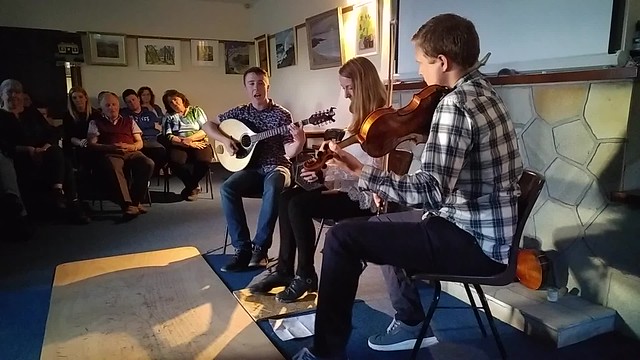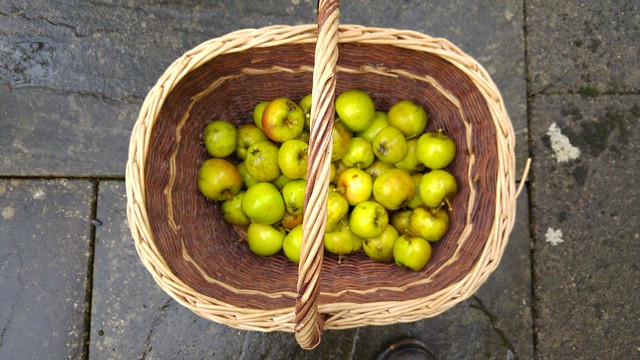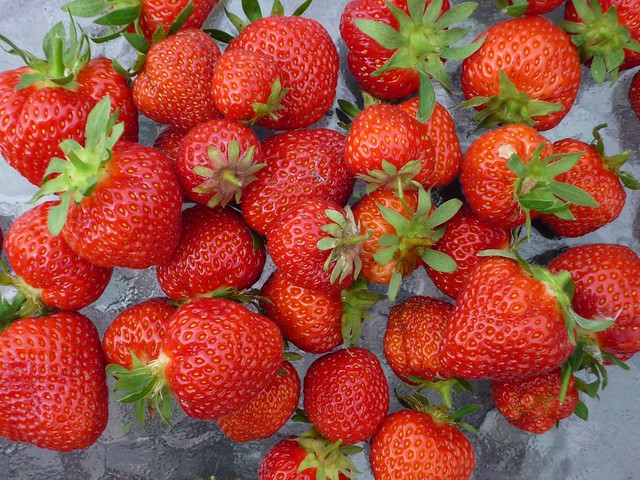Words for grass, hay and related words in Celtic languages.
| Proto-Celtic | *wegrom/*wegro- = grass |
|---|---|
| Old Irish (Goídelc) | fér [fʲeːr] = grass |
| Irish (Gaeilge) | féar [fʲeːɾˠ] = grass, hay féarach = pasture féaránach = grazing animal, animal sent to pasture féarúil, féarmhar. = grassy |
| Scottish Gaelic (Gàidhlig) | feur [fiər/fjɔːrʲ] = grass, hay feur-itheach = herbivorous feur-tioram = hay fiabhras-feòir = hay fever |
| Manx (Gaelg) | faiyr [feːə] = grass |
| Middle Welsh (Kymraec) | gweir, gweyr, gueir = grass, hay |
| Welsh (Cymraeg) | gwair [ɡwai̯r] = grass, hay |
| Cornish (Kernewek) | gora = hay |
| Breton (Brezhoneg) | garzh = hedge, wooden slope |
Etymology: possibly from the Proto-Indo-European *h₂weg- (to heap up, increase, enlarge) [source].
| Proto-Celtic | *gʷeltā = grass *gʷeleti = to graze |
|---|---|
| Old Irish (Goídelc) | gelt = grazing, feeding, pastures gelid [ɡʲe.lʲəð] = to graze, consume |
| Irish (Gaeilge) | geil = to graze |
| Scottish Gaelic (Gàidhlig) | geil [gʲel] = graze |
| Manx (Gaelg) | gyndyr = grazing, graze, browsing |
| Proto-Brythonic | *gwellt [ˈɡwɛlt] = grass |
| Middle Welsh (Kymraec) | geul, guell, guelt = grass |
| Welsh (Cymraeg) | gwellt [ɡweːɬt/ɡwɛɬt] = grass, herbage gwellta = to gather/spread straw gwelltach = waste/worthless straw, stubble, litter gwellty = straw-house gwelltiaf, gelltio = to turn to straw, finish flainling straw gwelltir = glass-land, pasture, prairie |
| Cornish (Kernewek) | gwels = grass |
| Old Breton | guelt = grass |
| Breton (Brezhoneg) | geot, gwelt [ˈɡɛwt/ˈɡɥɛlt] = grass geoteg = pasture geotegek = grassy, grazier, pasture |
Etymology: unknown [source].
Sources: Wiktionary, Am Faclair Beag, Online Manx Dictionary, Teanglann.ie, eDIL – Electronic Dictionary of the Irish Language, In Dúil Bélrai English – Old Irish glossary, Geiriadur Prifysgol Cymru, Gerlyver Kernewek, Dictionaire Favereau, TermOfis, English – ProtoCeltic WordList (PDF), Etymological Dictionary Of Proto Celtic










